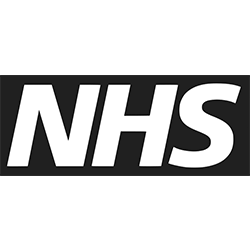Community engagement to transform health services in Cumbria
Between October 2015 and March 2017, Freshwater devised and implemented a communications, engagement and consultation strategy for health service transformation in West, North and East Cumbria.
We delivered a wide-ranging pre-consultation engagement programme, followed by a 12-week formal public consultation on potential changes to emergency and acute services, maternity and children’s care and community hospital inpatient beds.
5,890
consultation and engagement responses received
1
Certificate of Good Practice awarded by the Consultation Institute
7,011
face-to-face "Chatty Van" consultations
Freshwater was brought in to devise and implement the communications and engagement strategy, for the Department of Health’s West, North and East Cumbria Success Regime, to support local health commissioners and providers in delivering a transformational reconfiguration programme in one of the country’s most challenged health regions.
Engagement and consultation activity included public meetings, stakeholder briefing events, deliberative workshops and patient focus groups. We also implemented a programme to ensure the views of seldom-heard groups were properly canvassed.
A particularly innovative activity was the travelling “Chatty Van”, a specially-equipped vehicle that visited remote and rural communities to ensure people throughout Cumbria had an opportunity to take part in the consultation. In total, more than 450 stakeholder and staff activities took place and more than 20,000 hard copies of the consultation document were distributed.
To ensure we reached people across multiple channels, we used media relations and content marketing to keep the programme’s digital presence – its website and social media channels – populated with engaging content about the consultation, and its aims.
Our integrated communications and engagement strategy ensured there was significant awareness of the Success Regime and its proposals, with 45,638 people viewing the consultation website, 6,760 people reading our electronic newsletter, and more than 2,400 pieces of media coverage generated on the programme.
By making the consultation accessible and visible, we received more than 5,890 consultation and engagement responses and 11% of the total local population expressed a consultation view.
In March 2017, North Cumbria Clinical Commissioning Group’s governing body considered the output from the public consultation, along with a number of other factors, and made a series of decisions to improve healthcare locally. Since then, the North Cumbria University Hospitals NHS Trust has moved out of ‘special measures’, and the Care Quality Commission rated the NHS North Cumbria Clinical Commissioning Group as ‘good’.
In a public letter to the Secretary of State, Lord Ribeiro, chairman of the Independent Reconfiguration Panel, concluded:
“The Panel’s view is that what has been done and achieved in the two years leading up to this referral has many commendable features. These include the approach taken to engaging interested parties [and] the consultation process.”
At the beginning of the programme, the NHS agreed that it should be subject to independent evaluation by the Consultation Institute, an organisation which champions good practice and quality assures public consultations. In line with the GCS Evaluation Framework, the programme was rigorously benchmarked and a significant amount of data was collected on outputs and outtakes.
When the programme concluded, the Consultation Institute confirmed that the project had successfully passed all six of the Institute’s quality checkpoints and awarded the programme a Certificate of Good Practice.
Contact
|
Client NHS West, North and East Cumbria Success Regime |
|
Related services
|
 |
